Posts Tagged ‘recall’
Household Safety: Check Old Appliances Before Winter
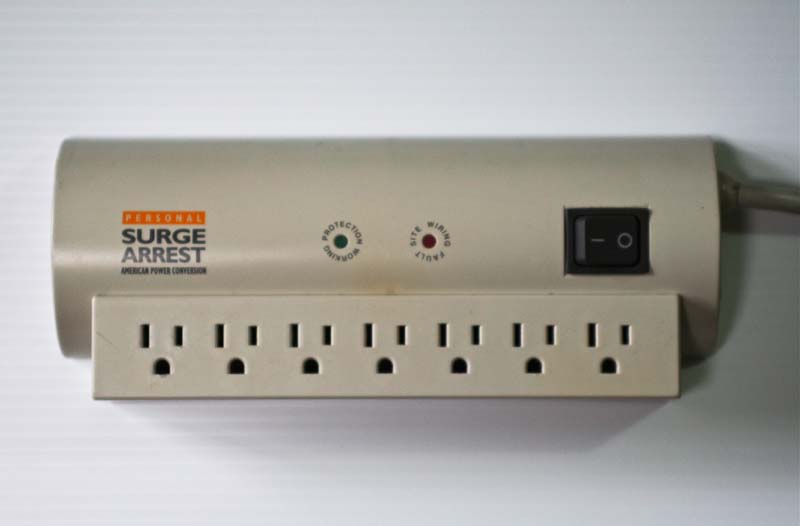 Now, as we head into winter, is a good time to test your home’s smoke alarms, check your appliances and inspect your electrical outlets and cords.
Now, as we head into winter, is a good time to test your home’s smoke alarms, check your appliances and inspect your electrical outlets and cords.
First, a good resource is the Consumer Product Safety Commission (CPSC) website, where you can search for recall news about products you may own. Recently, there have been several recalls involving products posing serious fire hazards.
One example is Schneider Electric IT Corp. recalled 15 million APC Surge Arrest surge protectors in early October. This followed 700 reports of property damage, including $916,000 in fire damage to a home and $750,000 to a medical facility. Another 13 reports were injuries, including smoke inhalation and contact burns. Another example is Gree Electric Dehumidifiers, which recalled 2.2 million dehumidifiers in the U.S. last month, after its products caused 46 fires and $2.15 million in property damage.
You can review the CPSC website to make sure you have no recalled products in your home. You can also take a look around your home for faulty cords or products.
Preventing Home Fires in the Winter
During a typical year, there are over 26,000 home electrical fires in this country, according to the U.S. Fire Administration. December and January see the most electrical fires. We share a few tips for preventing these fires:
1) Check your smoke alarms before the season.
2) Regularly check your electrical appliances and wiring. Replace any old or damaged cords; do not try to repair them.
3) Replace any appliance you feel may not work properly. If you do not want to replace it, call a repair service or visit the store where you purchased the product. Check electric space heaters every year as a rule.
4) Buy appliances which have the label of a recognized testing laboratory, such as UL.
5) Avoid using extension cords.
6) Use only surge protectors or power strips that have internal overload protection and have been tested by a national laboratory.
7) Keep clothes and flammables at least three feet away from all portable electric space heaters.
8) Use light bulbs that match recommended wattages for lamps.
9) Bring in an electrician if you are experiencing flickering lights or other problems.
Related:
Electrical Home Fire Safety, U.S. Fire Administration
Schneider Electric Recalls APC Surge Protectors Due to Fire Hazard, Consumer Product Safety Commission.
Read More
Product Liability: Retailer Fined $3.9 Million for Illegal Sale of Children’s Clothing with Drawstrings
Last month, a discount retailer agreed to pay one of the largest fines ever issued by the Consumer Product Safety Commission (CPSC). The civil penalty settles allegations over illegal sales of children’s clothing with drawstrings.
The CPSC announced that Ross Stores, based in Pleasanton, California, agreed to pay a $3.9 million penalty and implement compliance programs. From January 2009 to February 2012, the CPSC alleges that Ross Stores knowingly failed to report that it sold or held for sale about 23,000 children’s upper outerwear garments with drawstrings at the neck or waist.
Under federal law, manufacturers, distributors, and retailers must report to the CPSC within 24 hours of learning about a defective product which may create a substantial product hazard. They must also report those which create an unreasonable risk of serious injury or death or fail to comply with CPSC regulations.
In July 2011, the CPSC issued a final rule and determined that children’s upper outerwear garments in certain sizes present substantial product hazards. The ruling should have taken the majority of children’s clothing with neck, hood and waist strings out of stores.
Ross Stores has now been fined twice over drawstring clothing for children. In 2009, it paid a $500,000 fine for failing to report it sold garments between 2006 and 2008.
The CPSC has received over two dozen reports of children suffering injury and wrongful death when clothing drawstrings get caught on playground equipment or vehicle doors. Since passing its 2011 rule, it has issued 8 recalls. In 2011, the CPSC also fined Macy’s $750,000 for selling children’s upper outerwear with drawstrings.
Related:
Ross Stores Fined in Sales of Defective Clothing, New York Times
Toyota Settles One of First Wrongful Death Cases
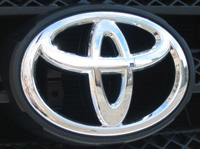 A month after being assessed a record $17.4 million fine, Toyota Motor Corp. has settled one of the first wrongful death lawsuits involving sudden and unintended acceleration by its vehicles.
A month after being assessed a record $17.4 million fine, Toyota Motor Corp. has settled one of the first wrongful death lawsuits involving sudden and unintended acceleration by its vehicles.
The Japanese automaker confirmed last week it had reached an agreement with the family of Paul Van Alfen and his son’s fiancee, Charlene Jones Lloyd, for an undisclosed amount in the November 2010 accident in which they died, USA Today reported. The automaker said it has also settled another case filed under California’s lemon law by a retired Los Angeles police officer.
Van Alfen and Lloyd were killed in 2010 when the Toyota Camry they were traveling in on Interstate 80 in Utah suddenly accelerated. Van Alfen, the driver, attempted to stop the vehicle, but ran through a stop sign and into a wall. His other passengers, his wife and his son, were injured. The Utah Highway Patrol investigated and determined the car accident was the result of a sticking gas pedal.
Other Injury Lawsuits. The settlement comes as a group of lawsuits consolidated in U.S. District Court in Santa Ana, California moves forward. Prior to the consolidation, Toyota had also reached a $10 million settlement in a case involving an auto accident which killed a California police officer and his family.
The officer and his family were killed near San Diego in 2009 when their Lexus accelerated above 120 mph, struck an SUV, rolled off an embankment and burst into flames. The car accident was blamed on a improperly sized floor mat which was trapped in the accelerator.
More Than $1 Billion Settlement. In December 2012, Toyota agreed to a settlement worth more than $1 billion to resolve hundreds of lawsuits claiming economic losses by car owners affected by its recalls. In recent years, the car manufacturer has recalled more than 14 million vehicles due to acceleration problems and brake defects.
$17.4 Million Fine. The National Highway Traffic Safety Administration issued Toyota a $17.4 million fine for safety defects in December 2012, the largest ever imposed. In 2010, the company paid a total of $48.8 in a series of three fines.
Related:
Toyota settles first wrongful death lawsuit, USA Today.
Toyota tackles acceleration lawsuits; questions remain, USA Today.
Toyota reaches $1 billion settlement in acceleration cases, USA Today.
Read More
Meningitis Outbreak Prompts Federal and State Action on Compounding Pharmacies
A Massachusetts congressmen is proposing legislation that would give the Food and Drug Administration (FDA) greater authority over compounding pharmacies in the wake of a 19-state meningitis outbreak that has killed 29 people.
Rep. Edward Markey, (D., Mass.) last week announced the legislation, which would allow the FDA to inspect and regulate pharmacies partly based on their product volume.
Currently, states hold most of the authority over compounding pharmacies and the FDA is limited to inspections. It cannot require a compounding pharmacy to follow any operating standard.
Markey’s proposal aims to add oversight for compounding pharmacies which produce larger quantities. It does not target the traditional compounding pharmacy, which makes drugs for individual patients with a prescription.
The meningitis outbreak is being blamed on tainted steroid shots made by New England Compounding Center (NECC) of Framingham. As of Nov. 2, 395 people had contracted fungal meningitis, including the 29 deaths. Nine patients have fungal joint infections from steroid injections to the knee, hip, shoulder and elbow.
Officials say the defective drugs were shipped to 23 states and up to 14,000 patients may have been exposed. None of the contaminated product was distributed to Massachusetts healthcare providers or hospitals.
Markey’s proposal follows other attempts for regulation. In 1997, Congress passed a law giving the FDA authority to regulate large compounding pharmacies which advertised their products. But the U.S. Supreme Court struck down the law in 2002.
In Massachusetts, the Board of Registration in Pharmacy also moved to tighten controls last week, unanimously approving rules which allow the state to track drugs made by compounding pharmacies. The state’s goal is to determine whether a compounding pharmacy is violating its license and producing bulk quantities like a manufacturing facility. State officials say NECC was in violation of its license.
NECC has been shut down by the state and all of its products have been recalled. Another compounding pharmacy under the same ownership, Ameridose of Westborough, also recalled all of its drugs last week. On Oct. 10, Ameridose agreed to a temporary shutdown, which has been extended until Nov. 19.
State officials are seeking permanent surrender of NECC’s pharmacy license and permanent license revocation for NECC’s three pharmacists. The state has also started inspecting other compounding pharmacies, one of which has agreed to surrender its license after violations were found.
The Federal Bureau of Investigation (FBI) has launched a criminal investigation and at least three people have also filed personal injury lawsuits, reports USA Today.
Related:
Insight: How compounding pharmacies rallied patients to fight regulation, Reuters.
Harsh punishments rare for drug compounding mistakes, USA Today.
Pharmacy board adopts new rules, The Boston Globe.
Meningitis outbreak nears 400 infected as lawmakers push for tougher regulation, Associated Press/CBS News.
Read More
Meningitis Outbreak: Over 300 Now Infected, 23 Dead as State Calls for Licenses
State officials have announced they will seek permanent surrender of New England Compounding Center’s (NECC) pharmacy license in the wake of a fungal meningitis outbreak which has infected more than 300 people and left 23 dead.
At a Tuesday press conference, state officials announced they will seek the pharmacy’s license and permanent license revocation for NECC’s three pharmacists. Recent state inspections of the closed-down Framingham facility found dirty and defective equipment and showed the company had failed to follow its own safety tests and properly sterilize tools.
Governor Deval Patrick said a federal criminal investigation has been launched, while Madeleine Biondolillo, director of the state Bureau of Health Care Safety and Quality, said the company had been violating its state compounding license. The facility was licensed to produce medicine with a patient-specific prescription in hand, not manufacture large shipments.
As of this week, 304 people had contracted fungal meningitis or joint infections linked to the injectable steroid produced by NECC, reported The Boston Globe. Testing has found the fungus matches a type found in unopened vials of the steroid shipped from NECC, though they are still investigating how the fungus got into the vials. The injectable steroid is methylprednisolone acetate.
The 23 deaths linked to the defective steroid come from seven states. No one has been reported ill in Massachusetts. But federal officials say as many as 14,000 people may have been exposed to the contaminated drug between May 21 and Sept. 26, when it was recalled. The company went onto recall all its drugs.
The Food and Drug Administration released a list this week of more than 3,000 NECC customers who received products other than the injectable steroid blamed for the meningitis outbreak. They included 215 Massachusetts doctors, health centers and hospitals. The shipments fell within the time frame of when the defective steroids were produced at the facility.
Ameridose, a Westborough pharmacy with the same owners as NECC, has also been closed down since Oct. 10 in an agreement with state officials. It is scheduled to remain closed until Nov. 5 for state inspections.
Related:
- CDC: 10 more people have fungal infections linked to Framingham pharmacy, The Boston Globe.
- New England Compounding did not follow sterility procedures, investigators find; state orders regular inspections of similar pharmacies, The Boston Globe.
- Corrected list of New England Compounding customers includes 215 in Massachusetts, The Boston Globe.
Contaminated Steroid Injections Trigger Outbreak in 23 States, 5 Deaths
Five people have died and at least 35 have fallen ill after being injected with a steroid which was contaminated with fungus from a Massachusetts compounding pharmacy.
The steroid was shipped to 75 health centers in 23 states, not including Massachusetts, according to media reports. Patients treated with the steroid in six states have fallen ill and died from aspergillus meningitis. Symptoms of this rare infection include headache fever, nausea and pain at the injection site.
The steroid was produced at New England Compounding Center of Framingham, Massachusetts. The company first recalled three lots of methylprednisolone acetate last week. This week, the Food and Drug Administration (FDA) has expanded the recall to include all injectable spinal drugs made by New England Compounding Center. The FDA is further urging health care providers to discard all products from the company as a precaution.
The 35 people who were stricken ill were treated with epidural injections of methylprednisolone acetate for lower back pain between July and September. The infected patients are from Tennessee, Virginia, Maryland, Florida, North Carolina and Indiana. Patients are still being notified. No Massachusetts facilities received the defective steroid injections, but there were shipments within New England to health care providers in Connecticut, Rhode Island and New Hampshire.
Nine Massachusetts health facilities did receive methylprednisolone acetate from other lots made by New England Compounding Center, but no cases of fungus meningitis have been reported.
New England Compounding Center has voluntarily given up its state license and ceased operation. Investigators this week found a contaminated sealed vial of steroid at the company, the FDA reported, and testing is being performed to determine if it is the same fungus as the outbreak.
The Boston Globe reported a state official said the Massachusetts Board of Registration in Pharmacy received complaints about the company in 2002 and 2003. The board worked with the company to improve conditions, but the official did not share details. The board is still investigating another complaint received in March about eye medications.
In 2006, the FDA sent the company a letter stating concerns including its splitting and repacking of the injectable colorectal cancer drug Avastin.
The case shines a light on regulations regarding pharmacies which prepare custom medications, often for patients who have allergies to other medications or for treatments which are no longer commercially available.
New England Compounding Center was not accredited by the Pharmacy Compounding Accreditation Board, which conducts a site visit and review of pharmacy every three years. The accreditation is voluntary.
Related:
5 deaths now tied to rare fungal meningitis possibly contracted from steroids prepared by Massachusetts pharmacy, Boston Globe.
Hundreds seen at risk in meningitis outbreak, Associated Press.
Massachusetts Board of Registration in Pharmacy.
Recalled Bicycles Have Defective Fork
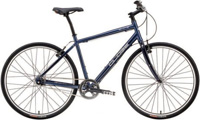 A bicycle distributor has recalled about 12,000 high-end bicycles because the front forks can break, posing a fall and injury hazard.
A bicycle distributor has recalled about 12,000 high-end bicycles because the front forks can break, posing a fall and injury hazard.
Specialized Bicycle Components, Inc. of Morgan Hill, California has recalled the bikes in cooperation with the Consumer Product Safety Commission (CPSC). The recalled bikes were manufactured by Kinesis of China. Specialized has received four reports of the front forks breaking. The front fork is the part of a bike which holds the front wheel up and allows the rider to steer. The four reports involved facial fractures, head and shoulder injuries and cuts.
The product recall spans a number of 2008 and 2009 men’s and women’s Global model bicycles. The models come in multiple colors and were sold nationwide at authorized Specialized retailers from July 2007 to July 2012. They sold for between $550 and $1,100. The recalled bikes include:
- Globe Elite
- Gloe Sport
- Globe Sport Disc
- Globe Centrum Comp
- Globe Centrum Elite
- Globe City 6
- Globe Vienna 3
- Globe Vienna 3 Disc
- Globe Vienna 4
- Globe Vienna Deluxe 3
- Globe Vienna Deluxe 4
- Globe Vienna Deluxe 5
- Globe Vienna Deluxe 6
Consumers are advised to immediately stop using the defective bikes and return them to an authorized Specialized retailer for a free installation of a free replacement fork.
Related:
- Specialized Bicycle Components Recalls Bicycles Due to Fall and Injury Hazards, CPSC.
Defective Blind Xpress Window Blinds Recalled
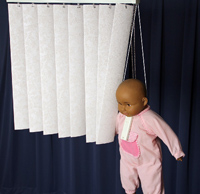 The case of a young Michigan girl strangled to death in a vertical blind has prompted the recall of about 139,000 custom-made vertical window blinds and 315,000 horizontal products.
The case of a young Michigan girl strangled to death in a vertical blind has prompted the recall of about 139,000 custom-made vertical window blinds and 315,000 horizontal products.
The Consumer Product Safety Commission (CPSC), in cooperation with Blind Xpress of Livonia, Michigan, announced the recall on September 6. The two-year-old girl from Commerce Township was reportedly strangled in the hanging loop of a Blind Xpress vertical blind cord in 2009.
The CPSC is recalling the defective window blinds because the design makes it easy for children to become entangled in the cord loop. Part of the problem is the custom vertical blind cords do not have a cord-tensioning device that attaches to the wall or floor. The horizontal blinds do not have inner cord stop devices.
The recall involves Blind Xpress blinds sold in specialty stores in Michigan, Ohio and Indiana from January 1995 through December 2011. The defective blinds were manufactured in the United States.
The CPSC urges consumers to immediately stop using the window blinds and contact the Window Covering Safety Council for a free repair kit. The toll-free number is 800-506-4636.
According to CPSC data, were 147 incidents involving children being injured or killed from 2004 to 2010 – or 21 per year.
The CPSC, industry and safety groups have made several efforts over the past couple decades, including recall/retrofit programs. The major push came in 2009, when after the death of 16 children, the industry recalled 55 million Roman Shades with exposed inner cords on the back of the shades.
The Parents for Windows Blind Safety, a non-profit organization which advocates for more stringent regulations, says the hazard lies with cords which stretch more than 7 1/4 inches. It proposes the window blind industry sell cordless blinds or those with inaccessible cords.
Related:
- Death of Child Prompts Recall of Window Blinds by Blind Xpress, Consumer Product Safety Commission.
- The History of Corded Window Covering Recalls, Parents for Window Blind Safety.
DePuy Hip Implant Cases Settled for $600,000
Johnson & Johnson has agreed to pay about $600,000 to resolve three product liability cases involving its DePuy hip implants, which were recalled in 2010 after hundreds of patient complaints and a study emerged revealing a substantial device failure rate.
The New Jersey-based company settled the cases of three women who had filed claims in a Las Vegas court. All three women had required a second hip revision surgery to treat and correct their pain. Each will receive about $200,000. The cases had been scheduled for trial Dec. 3.
The next three lawsuits involving defective DePuy hip implants are set for January in a Maryland state court.
In August 2010, Johnson & Johnson’s DePuy unit recalled 93,000 of its ASR hip implants globally and 37,000 in the United States. The recall was announced alongside results of a study from a UK joint replacement registry, which showed 12 percent of patients required a second revision surgery within five years. The Food and Drug Administration (FDA) also reported it had received about 400 complaints from patients in the two years prior.
Since the DePuy hip recall, more than 8,000 patients across the country have filed lawsuits against the medical device maker, alleging the ASR hips are defective. About 6,000 of these have filed in federal court.
Patients claim the DePuy metal-on-metal hip implants are defective, saying they caused friction between the metallic ball and socket components. The recalled DePuy hip implant can wear down and produce metallic particles in patients’ bloodstreams, along with pain, joint dislocations, infections and bone fractures.
Johnson & Johnson said it has spent about $800 million on the hip implant recall.
Related:
- J&J said to pay $600,000 to settle first suits over hips, Bloomberg Business Week.
- DePuy hip implant recall leads insurers to seek recovery, Massachusetts Injury Lawyer Blog.
Defective Dehumidifiers Recalled by Sears and Kmart
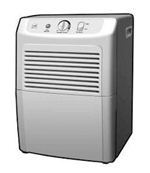 Sears, Roebuck and Co. and Kmart Corp. have issued a large product recall for dehumidifiers which can overheat, smoke, melt and catch on fire.
Sears, Roebuck and Co. and Kmart Corp. have issued a large product recall for dehumidifiers which can overheat, smoke, melt and catch on fire.
The voluntary recall, issued in cooperation with the Consumer Product Safety Commission (CPSC), is for 795,000 Kenmore Dehumidifiers. The devices were manufactured by LG Electronics (TIanjin) Appliance Co. Ltd., of Tianjin, China.
There have been 107 reports of incidents involving injury, including three cases of smoke inhalation. The humidifiers have caused more than $7 million in property damage.
The product recall covers 35-, 50- and 70-pint dehumidifiers which were manufactured between 2003 and 2005. They were sold at Sears and Kmart stores nationwide as well as the stores’ websites from 2003 to 2009 for between $140 and $220.
If you suspect you have a defective device, click the link below to see if your product model number is on the list and how to contact the store. Consumers who own a defective device are advised to immediately stop using it and unplug it. They will be compensated with a gift card which can be used at Sears or Kmart, as well as with a $25 coupon to purchase a new device at Sears.
LG Electronics Tianjin Appliance Co. issued another dehumidifier recall in 2009 and again in 2011 for 98,000 units. The Goldstar and Comfort-Aire dehumidifiers had a power connector which could short circuit, posing a fire risk. The company issued that recall after receiving 11 reports of property damage totaling more than $1 million. A Hudson, Mass. sustained $183,000 in damage from one of the defective dehumidifiers.
Those dehumidifiers were sold at The Home Depot, Walmart and Heat Controller Inc. nationwide from January 2007 and June 2008. In that case, consumers were advised to stop using the defective products and contact LG to arrange a free repair at an authorized service center.
Related:
Sears Recalls Kenmore Dehumidifiers Due to Fire and Burn Hazards, Consumer Product Safety Commission.
Dehumidifiers Recalled by LG Electronics Tianjin Appliance Due to Fire and Burn Hazards, Consumer Product Safety Commission.
Consumer Product Safety Commission.
Product Liability, Breakstone, White & Gluck.
Read More

